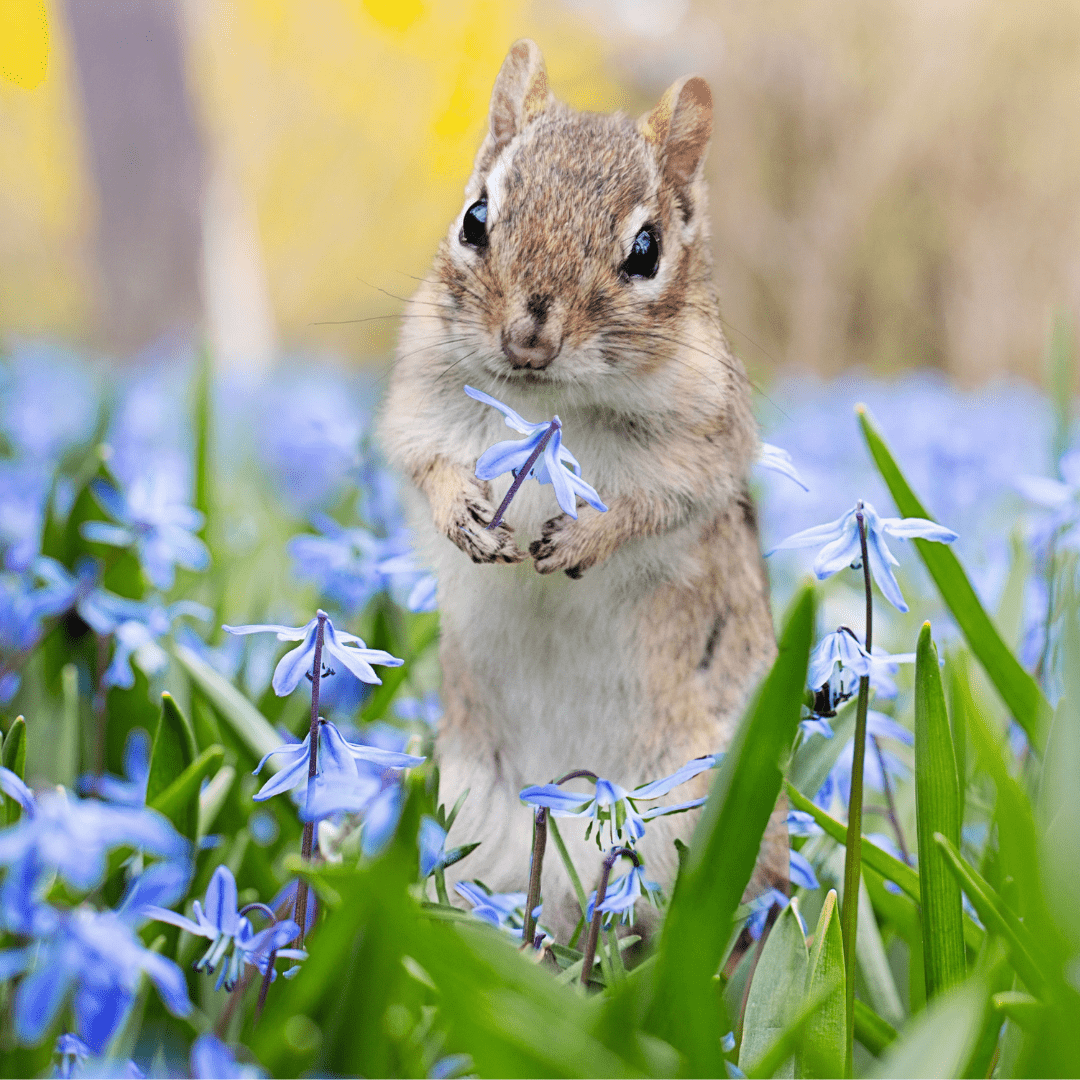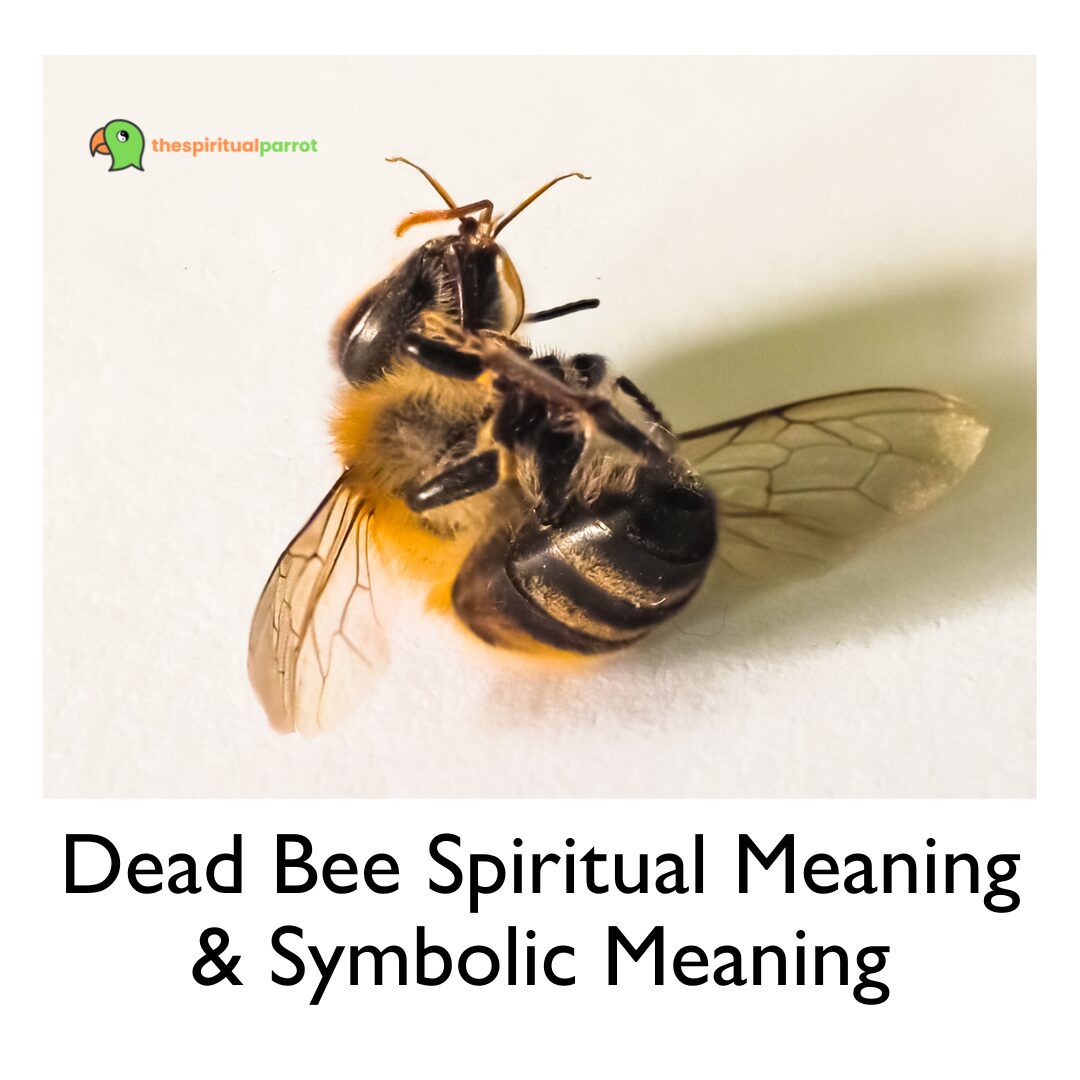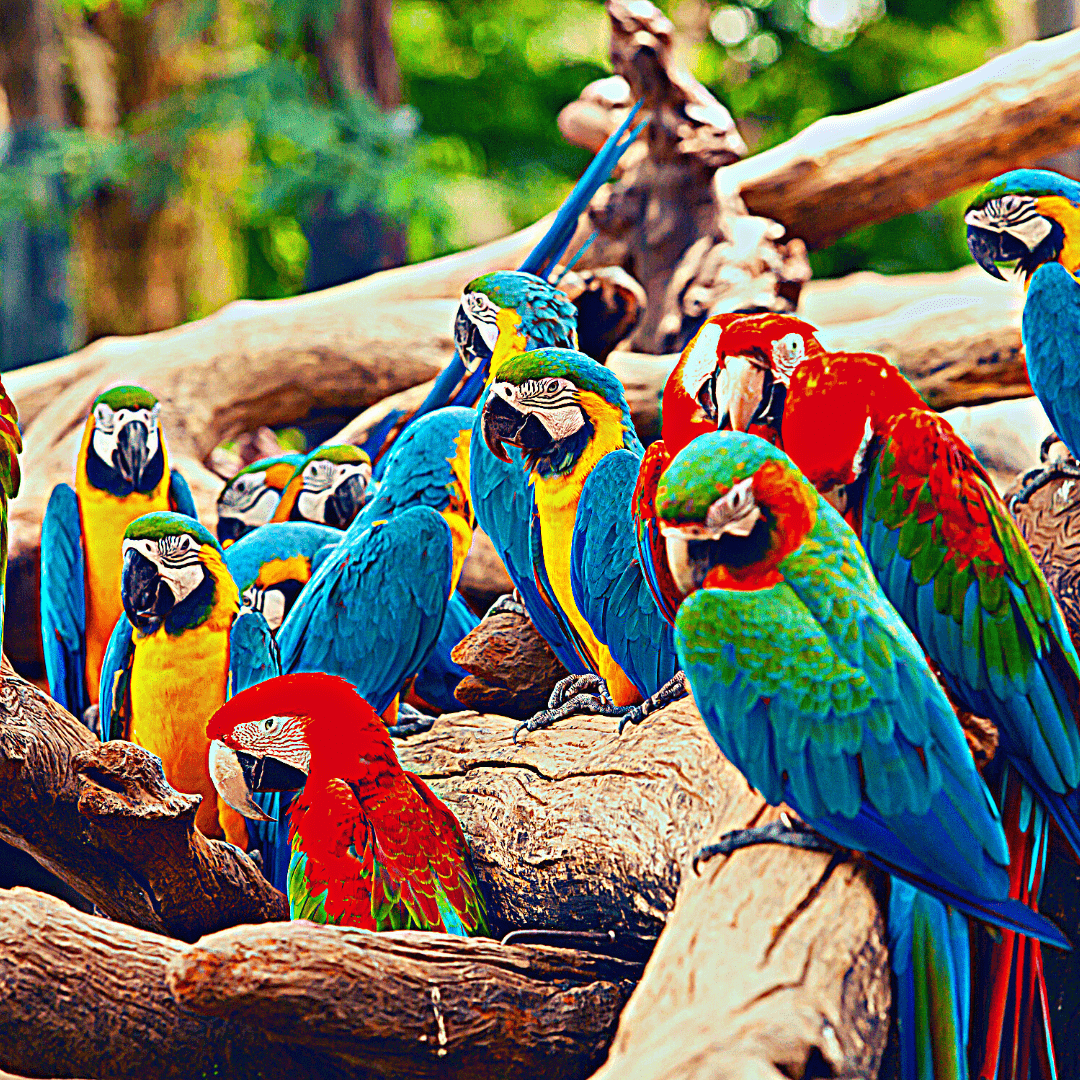Welcome to a journey into the fascinating world of chipmunks, where we delve into the spiritual symbolism these tiny creatures carry. In this blog post, “Chipmunk Symbolism: Spiritual Meaning of Chipmunks,” we explore the profound connections between the natural world and our spiritual lives, using the chipmunk as our guide.
Chipmunks, with their vibrant energy and playful nature, have long been a source of intrigue and inspiration. They are more than just adorable creatures; they hold deep symbolic meanings that resonate with our spiritual quests. This post aims to shed light on these meanings, offering a fresh perspective on how we perceive and interact with the world around us.
This exploration is not just for animal lovers or spiritual seekers but for anyone curious about the interconnectedness of all beings. It’s about understanding the messages nature sends us through its creatures, and how these messages can guide us on our life’s journey.
So, whether the charm of chipmunks has always captivated you or you’re simply interested in exploring new spiritual concepts, this blog post promises to offer an enlightening read. Join us as we unravel the spiritual symbolism of chipmunks, and discover what these lively creatures can teach us about life, spirituality, and ourselves.
Stay tuned, and prepare to see chipmunks in a whole new light.
What are Chipmunks?
Chipmunks are small, striped rodents that belong to the squirrel family. These creatures are well known for their lively nature and adorably cute appearance. Their symbolism has deep spiritual significance in many cultures worldwide.
The presence of chipmunks often signifies intelligence, resourcefulness, and agility. Because they are active throughout the year, they represent a strong work ethic and perseverance, which is always inspiring.
These little creatures have a significant place in Native American culture and signify spiritual awakenings, discovery, and gathering of knowledge. In Eastern cultures, chipmunks represent fertility and signify a need to be quick-witted in situations.
Pro Tip – Seeing a chipmunk is a reminder that we should strive for personal growth by being curious and actively seeking out knowledge from our surroundings.
Chipmunks may be cute and furry, but their spiritual significance is no laughing matter – they represent hard work, diligence, and a refusal to quit, even in the face of obstacles.

Spiritual Significance of Chipmunks
Chipmunks are symbolic creatures with deep spiritual significance. The presence of a chipmunk in your life can signify that you are being guided to pay close attention to your surroundings and be aware of the messages the universe is trying to convey to you. Chipmunks represent the essence of spiritual teachings, reminding us to embrace positivity in our lives and to approach our problems with a lighthearted and playful attitude.
Chipmunks also represent a variety of spiritual concepts and virtues such as balance, harmony, adaptability, and resourcefulness. People know these adorable creatures for their quick and agile movements and their ability to store large amounts of food in their cheeks. This is a testament to the values of preparation, diligence, and efficiency that we should all strive to embody in our daily lives.
Another unique trait of chipmunks is their excellent sense of smell, which allows them to detect danger and avoid potentially hazardous situations. This can teach us to rely more on our intuition and inner guidance when faced with difficult decisions. Trusting in ourselves and our abilities is key to overcoming challenges and achieving our goals.
Chipmunks have visited many people during trying or transformative periods, often interpreted as signs of good luck or divine intervention, providing comfort and reassurance to those struggling.
Chipmunks as Messengers of Change
Chipmunks play a vital role in spiritual beliefs across the world. They represent change, growth, and movement. These tiny creatures are messengers of shifting energies, reminding us to embrace new beginnings and adapt to new situations. Chipmunks as Messengers of Change signifies the importance of exploring different possibilities and embracing change.
In Native American folklore, chipmunks symbolize luck and courage in facing challenges. In Celtic traditions, chipmunks represent protection and independence. Also, In Hindu culture, chipmunks are linked to knowledge and wisdom. Regardless of the culture, Chipmunks as Messengers of Change emphasize an important lesson: Change is inevitable but necessary for personal growth.
These little rodents also remind us not to sweat the small stuff; their playfulness encourages us to stay lighthearted during times of stress or turmoil. Embrace change with a positive attitude and see it as an opportunity for growth. Observe nature; learn its lessons and demonstrate flexibility in action.
They are the ultimate masters of adaptability, proving that even the smallest creatures can overcome any obstacle, except for maybe a vacuum cleaner.
Chipmunks as Symbols of Adaptability
Chipmunks, known for their adorable appearance and lightning-fast movements, hold great spiritual significance as symbols of adaptability. These tiny creatures have an innate ability to adjust to new environments and situations without losing their sense of self. They are smart problem solvers who can quickly find food and shelter in unpredictable habitats. This level of adaptability is a crucial survival skill that we humans can learn from chipmunks.
Their tendency to store nuts and seeds in vast quantities throughout the year signals long-term planning and preparedness. Chipmunks’ storage units serve more than just the purpose of hoarding, for they often forget where they have hidden their stash. This failure provides opportunities for other animals to feed on the fruits of chipmunk labor. Thus, chinkapins may also symbolize generosity by sharing with others in need.
Some Native American communities considered chipmunks as symbols of playfulness, joy, and rejuvenation. Their high-pitched chirping sounds are believed to signal new beginnings and fresh starts in life. Their relentless energy signifies the importance of hard work, determination, and focus toward achieving goals. Therefore, seeing a chipmunk may serve as a reminder to stay optimistic during challenging times.
The spiritual significance of chipmunks highlights adaptivity as an essential characteristic for thriving in our rapidly changing world. With unpredictable economic conditions caused by technological advancements or pandemics like COVID-19, it’s vital to learn from these cute creatures’ lessons about adapting to circumstances beyond our control.
So take inspiration from the spirit of the chipmunk and learn how to adapt seamlessly in your personal life or business dealings. Those who ignore this teaching risk being left behind and not achieving their full potential like many other smart animals outside natural selection-driven theory!
Chipmunks as Emblems of Work and Labor
Chipmunks are recognized as representations of hard work and labor in many spiritual traditions. They symbolize diligence and perseverance in achieving goals through persistent efforts. The tireless nature of chipmunks is a reflection of their connection with the earth and the essence of survival – they store food for winter months, which carries a deep message that one must plan to survive. Their frequently observed movements signify the importance of staying active in whatever work one undertakes. Additionally, their habitat consists mainly of burrows, suggesting that even small living spaces can produce significant results. Another unique trait is their ability to carry multiple tasks at once, highlighting their multitasking skills.
People believe that observing chipmunks crossing our path or peeping through the window symbolizes an upcoming workload or project that requires immediate attention and persistence for its success. The presence of these tiny creatures somewhere near us may also indicate opportunities for growth, progress, and abundance in our professional careers.
According to indigenous Algonquian stories, chipmunks hold a sacred place as important spirit animals that bring good luck and success through hard work and determination. The Hopi community associates them with progression and teaches them to follow one’s dreams by persistently pursuing them.
It is interesting to note that there are 25 species of chipmunks worldwide from the family Sciuridae, including prairie dogs and squirrels. A 2017 study showed that certain chipmunk species play crucial roles in forest regeneration by distributing vast amounts of seeds throughout their habitats by scatter-hoarding.
They may be small, but their playful nature can bring big amounts of joy into our lives.

Chipmunks as Harbingers of Playfulness and Joy
Chipmunks are symbolic creatures that represent the coming of good times and joyfulness. They herald a season of excitement and merriment with their playful nature. Their carefree antics bring energy to those around them, encouraging us to let loose and enjoy life’s simple pleasures. The chipmunk is a reminder to take a break from the stresses of our daily lives and embrace moments of pure joy.
The chipmunk’s slender frame and agile movements inspire feelings of freedom and lightness in our spirits. Just like these tiny creatures scurry about their business without a care in the world, so too can we release our worries and find inner peace. Even something as small as seeing a chipmunk dart across your path can be enough to remind you to focus on positivity throughout the day.
A unique attribute of chipmunks is their ability to store food for later use. This resourceful behavior reflects how we should prepare for future challenges by drawing upon our past experiences and learning how to better navigate difficult situations. By observing these creatures in the wild, we can learn valuable lessons about survival skills and adaptability.
According to Native American tradition, chipmunks were believed to have connections with spiritual beings who brought messages from afar. They were considered sacred animals who acted as intermediaries between humans and divine forces. The Hopi community associated these rodents with abundance due to their food-hoarding habits, while other cultures viewed them as symbols of courage or perseverance.
A fact about chipmunks is that they belong to the squirrel family Sciuridae. Source: National Wildlife Federation.
Why have one cultural symbol when you can have many?
Chipmunk Symbolism as a Spirit Animal and Totem
The chipmunk, often seen as a playful and energetic creature, holds significant symbolism when considered as a spirit animal and totem. Understanding its characteristics and meanings can offer insights into one’s life and spiritual journey:
As a Spirit Animal:
- When a chipmunk appears to you as a spirit animal, think of it as a nudge to infuse your life with more joy and playfulness. These sprightly creatures are all about finding happiness in the little things and not taking life too seriously.
- Chipmunks also remind us of the value of preparation. Ever noticed how they gather food for winter? They’re telling us, in their own chipmunky way, to plan ahead and be ready for what the future might bring.
- Let’s not forget their social nature. If a chipmunk is your spirit animal, it might be encouraging you to express yourself more and strengthen your social ties. They’re quite the communicators in the animal world, after all!
As a Totem Animal:
- Having a chipmunk as a totem animal is pretty special. It represents agility and quick thinking. Ever seen how fast they scamper? That’s your cue to be more adaptable and quick on your feet in life situations.
- They’re also a symbol of balance. Chipmunks work hard (gathering food is no joke!) but they also know when to play. If this is your totem, it’s a gentle reminder to find a healthy balance between work and relaxation.
- Alertness is another chipmunk trait. As a totem, they teach us to be aware of our surroundings and stay vigilant, but without becoming overly anxious.
So, whether as a spirit animal or a totem, the chipmunk has some profound lessons to offer. It’s all about embracing joy, preparing for the future, and maintaining a balance in life. Pretty amazing what we can learn from these little critters, right?
Symbolic Significance of Chipmunks Across Cultures
Chipmunks have also been associated with intelligence, resourcefulness, and adaptability. Their ability to store and gather food for the winter teaches us the value of preparation and hard work. In Christian art, chipmunks are sometimes depicted as symbols of temptation and deceit due to their sly and crafty behavior.
To fully understand the symbolic meaning of chipmunks, one should explore these cultures and their beliefs. This will help us to gain a broader perspective on the significance of these creatures. Reading books and attending cultural festivals can also help unravel their symbolism. By observing the behavior of these animals, we can learn much about their symbolic significance.
The symbolic meaning of chipmunks is rich and diverse, and it is essential to explore and understand its meaning in different cultures. Through this exploration, we can appreciate and learn from their symbolic significance. Native American traditions say the chipmunk teaches us to always be prepared, as evidenced by its impressive stash of acorns and a Costco membership.
Native American Traditions related to Chipmunk
Throughout the vast and diverse Native American cultures, symbolism plays a significant role in everyday life. From intricately woven blankets to traditional dances, every aspect of life has its unique meaning. These symbols vary between communities, but some common ones include animals like the eagle and wolf, which represent strength and wisdom respectively.
In Native American traditions, colors hold great significance as well. Black represents death or mourning while white symbolizes purity or peace. Many cultural practices commonly incorporate the number four, symbolizing balance and completeness. For instance, the Hoop Dance reflects oneness with the natural world by performing with hoops made from four different materials.
Interestingly, many Native American communities also practice dreamcatcher ceremonies to bring positive dreams and energy into their lives. People believe that dreamcatchers filter out negative thoughts that come through during sleep.
One true history lies in the story of the Cherokee Nation’s Trail of Tears. In 1838, U.S. soldiers forcibly removed over 16,000 Cherokee people from their homes in Georgia and forced them to march westward where thousands died along the way. Despite this dark history, Cherokee culture remains strong today with a rich history of traditional practices and faiths centered around animal spirits and Mother Earth.
Who knew that the humble red envelope could have so much symbolism in Chinese culture? It’s like the Swiss Army Knife of Gifts.
Chinese Symbolism About Chipmunk
The ancient Chinese civilization is renowned for its rich symbolism present in art, literature, and cultural practices. Symbolism plays a crucial role in conveying the traditions and beliefs of Chinese culture to others. The vast range of symbols includes animals like dragons and birds, mythical creatures like unicorns, as well as everyday objects like fans and flowers.
Chinese symbolism employs numerous concepts with significant cultural relevance. These symbols include yin and yang, representing balance and harmony; the five elements – earth, wood, fire, metal, and water – that dictate all matter; as well as the Chinese zodiac consisting of twelve animal signs that correspond to particular years.
An essential aspect of Chinese symbolism lies in the color palette incorporated into their traditional practices. The colors red and gold are particularly important as they symbolize joy, happiness, prosperity, and wealth. However, black is viewed negatively due to its association with death.
To appreciate the depth of Chinese symbolism truly, it is vital to explore their history and beliefs thoroughly. One should also keep an open mind when interpreting these symbols to avoid misinterpretation or offense.
Incorporating any of these elements into one’s lifestyle or design can elevate them greatly. For instance, incorporating colors such as red or gold into a decor theme symbolizes luxury while inducing positive energy into space. Also integrating Feng Shui principles creates a harmonious living environment with specific spatial arrangements taking care of workable room energy patterns.
Did you hear about the Hindu god who tried to quit smoking? He couldn’t kick the ‘Karma-tine’ habit.
Hindu Beliefs about Chipmunk
The religious beliefs of Hinduism consist of complex symbolism deeply rooted in mythology and spirituality. Hinduism has a pantheon of gods and goddesses, each with its representative animal or object. The cow is revered as sacred by Hindus as it represents motherhood, abundance, and gentleness. Lord Ganesha, the elephant-headed god, symbolizes wisdom and auspicious beginnings. Lord Shiva is seen as the destroyer of evil and creation, reflecting the cyclical nature of the universe.
One of the most significant symbols in Hinduism is ‘Om‘, a sacred sound representing the essence of divinity. It is often chanted during meditation or spiritual practices to focus on inner peace. The Rangoli- a decorative pattern made using rice powder or sand- is another important symbol in Hindu culture that signifies welcoming guests and spreading joy.
Hinduism also places great emphasis on karma– an individual’s actions influencing their future life experiences and existence even after death.
Society abolished the caste system based on birth but did not entirely eradicate it. It still affects social norms today.
Pro Tip: Taking time to understand symbolism can bring deeper insights into cultural traditions and beliefs.
Reflecting on my life is like trying to find meaning in a Nicolas Cage movie – confusing, surreal, and ultimately unsatisfying.
Reflecting on the Spiritual and Practical Lessons from Chipmunks
Understanding the symbolism of chipmunks requires personal reflections on one’s life. Chipmunks are an embodiment of self-reflection and introspection; they represent a person’s ability to look within themselves and get in touch with their spiritual side. By contemplating our lives, we can learn how to seize opportunities and create a fulfilling life.
Additionally, observing the chipmunk’s dynamic behavior, such as their ability to scamper along the forest floor or climb trees without difficulty, teaches us to be resourceful and persistent in the face of challenges. Chipmunks also represent adaptability, as they can change their habitats and eating patterns to suit their needs. By reflecting on the chipmunk’s ways, we may adopt their age-old techniques to be resilient beings.
Unique to the chipmunk, their distinctive stripe pattern and energetic movements evoke a youthful vibrancy and creativity. Folklore suggests seeing a chipmunk is a symbol of renewed life, vitality, and childlike wonder. Observing chipmunks around us or in dreams is a call to rejuvenate our youthful spirit and seek out joy in the present moment.
It is essential to note that chipmunks are prone to carry ticks, which can cause diseases. According to the Centers for Disease Control and Prevention, ticks can cause Lyme disease, anaplasmosis, babesiosis, Rocky Mountain spotted fever, and Powassan virus disease. Therefore, it is advisable to take significant preventive measures when exploring their environment.
The Role of A Chipmunk in Our Lives
Chipmunks play a significant role in our lives, providing us with entertainment, joy, and a connection to nature. Small, furry creatures dart around in forests or parks, gathering food for the upcoming winter months. They serve as an important member of the ecosystem by helping to disperse seeds and their burrows create habitats and homes for other wildlife.
It is fascinating to observe how chipmunks interact with their environment. Their behavior is complex and intriguing, as they scurry around finding nuts and seeds to store for winter. Their playful antics bring happiness and entertainment into our lives, reminding us to appreciate the simple pleasures in life.
In addition, some cultures view chipmunks as symbols of luck or fortune. Native American communities consider them messengers of divinity and use their image in ceremonies related to abundance and prosperity.
I remember one summer day when I was sitting on my front porch studying for final exams. Suddenly, a tiny chipmunk appeared out of nowhere and began frolicking near me. It seemed unafraid of my presence and continued to play until I finished my studies. That chance encounter brought immense joy into my life – reminding me that I can find moments of unexpected beauty anywhere.
All in all, the presence of chipmunks in our lives provides significant benefits beyond what we may recognize at first glance. As we continue to coexist with these creatures, perhaps we can learn from their simplicity and playfulness – bringing more joy into our daily routines.
Who knew embodying the symbolism of chipmunks could be so hard? I mean, have you seen the size of their cheeks?

Embracing the Chipmunk’s Wisdom
Chipmunks hold deep-rooted symbolism in various cultures and mythologies around the world. They represent tenacity, resourcefulness, and agility. As animals that hibernate, they also embody rebirth, renewal, and new beginnings.
By embodying these traits, we can learn to become more resilient and adaptable in our lives. By recognizing their significance, we can learn to appreciate ourselves better as human beings.
Moreover, observing chipmunks’ behavior can help us develop a deeper connection with nature and understand its mysteries.
Engaging in outdoor activities like hiking or gardening improves mental wellness and connects us with nature.
Additionally, meditating on the symbol of the chipmunk provides self-discovery opportunities. Focusing on embodying their traits can help one overcome personal obstacles while keeping an optimistic outlook on life.
Finding and personifying chipmunk symbolism connects us to nature, fostering personal growth and well-being, shareable with others or therapists.
Conclusion.
The spiritual meaning of the chipmunk is fascinatingly intricate. The chipmunk’s symbolism revolves around alertness, resourcefulness, social awareness, and adaptability. It is intriguing to note that different cultures perceive the chipmunk in diverse ways. In some Native American communities, it represents a messenger of wisdom and knowledge, while in some Asian cultures, it symbolizes luck and prosperity.
Digging deeper into the chipmunk’s spiritual significance signifies how it comes down to understanding one’s environment better and adjusting accordingly. The chipmunk teaches us to be mindful of our surroundings and also to use what we have effectively. Observing the chipmunk hustling foraging for food demonstrates the need to make fast decisions at times.
The chipmunk’s lesson alters perspectives, also emphasizing adaptability in challenging situations like exams or job interviews. Understanding the spirituality behind animals is essential in many indigenous communities that emphasize connecting with nature. Being knowledgeable regarding various animal symbolism aids in gaining practical insights applicable even today.
Don’t ignore the spiritual significance of animals. Research their symbolism to grow on your spiritual journey.












